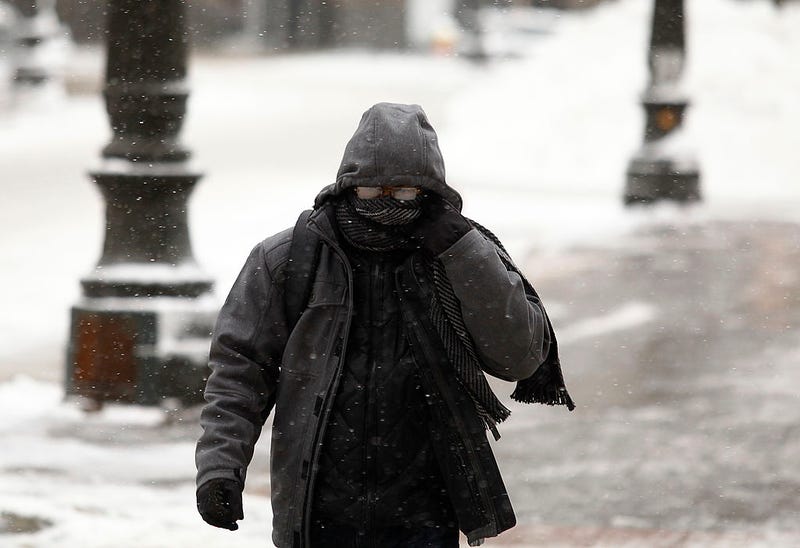
Officials are urging people in several states to take precautions as a round of bitterly cold weather settles in across parts of the U.S.
Temperatures are dropping dangerously low in the Midwest and Northeast, and millions of people are urged to be extra cautious when going out in the extreme cold.
Wind chill warnings, watches or advisories were posted for 12 states, from Montana to Maine.
Bitter cold is expected in the Northeast through early Wednesday, while milder air is expanding across the Central U.S., according to the National Weather Service.
Major cities including Boston, Detroit and New York are in a deep freeze with overnight readings dropping into the single digits. Wind chills are making temperatures feel much colder -- more like several degrees below zero.
"Blustery winds will add an extra bite to the cold snap, with widespread wind chills below zero throughout the region and as low as 40 below zero in northern Maine," the NWS said.
The extreme cold is also causing school closures in multiple states. Districts canceled classes, saying they did not want children standing outside for extended periods of time waiting for buses, according to the Associated Press.
Elsewhere, temperatures in Minnesota dropped as low as 31 degrees below zero Monday morning -- that's without a wind chill.
Exposure to extreme temperatures could potentially cause frostbite and hypothermia, as well as create hazardous driving conditions and cause frozen pipes.
To stay safe during cold weather:
• Stay indoors if possible. If you must go outside, wear protective gear—such as hats, mittens and gloves—in addition to a warm coat. Always protect your lungs with a scarf.
• Watch for signs of frostbite, which include loss of feeling or pale appearance of fingers, toes or face.
• Watch for signs of hypothermia, which include uncontrollable shivering, memory loss, drowsiness and exhaustion.
• Understand the hazards of wind chill. As wind speed increases, heat is carried away from a person’s body more rapidly and could lead to severe hypothermia.
• Remove clothing if it gets damp or wet. Wet clothing can make you more prone to hypothermia.
• Check on family, friends and neighbors who are at risk and may need additional assistance.
• Watch pets closely and keep them indoors when possible. Animals can suffer from hypothermia, frostbite and other cold weather injuries.
• Minimize travel. If travel is necessary, keep a full tank of gas and an emergency preparedness kit in your vehicle. Put warm clothing—such as gloves, blankets and hats—in your kit in case you become stranded.


